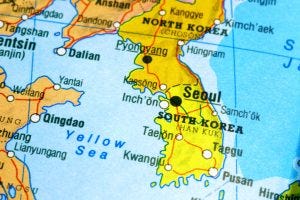
The 364,000 L of bioreactor capacity at Samsung Biologics’ site in Korea will be fully utilized by 2022, says the CDMO as it contemplates a new facility.
Contract development and manufacturing organization (CDMO) Samsung Biologics has grown its site in Songdo, Incheon since its inception in 2011 with three plants hosting a total of 364,000 L of mostly stainless-steel bioreactor capacity.
Plant number one has 30,000 L of capacity from six 5,000 L tanks. Plant number two offers 150,000 L of capacity through 10 times 15,000 L fermenters, plus a further two 1,000 L stainless steel tanks for clinical manufacture. The third facility – which began production in October 2018 – consists of 180,000 L of capacity from 12 times 15,000 L tanks.

Image: iStock/Manakin
But CEO Kim Tae-han has previously said “the company will prepare to add a fourth plant and new bio campus” to keep up with the momentum of biomanufacturing demand from its customers, something a Samsung Biologics spokesperson confirmed when contacted.
“We announced a plan to expand our facility through various channels including JPM and Shareholder’s meeting, etc,” we were told, but the “addition of a fourth plant is a plan that is to be studied in the long run.”
No final investment decision has yet been made at the management level.
Capacity and dealmaking
However, Kim has said that operational capacity at the third plant is expected to reach full utilization by the year 2022, which could speed up design plans, and recent large-scale contract announcements indicate capacity space is filling up.
According to the Nikkei Asian Review, the CDMO has closed over $1.5 billion worth of orders in the past three months; a mix of biosimilar, novel antibodies, and deals related to industry’s efforts to against the novel coronavirus.
In April, Vir Biotechnology inked a deal worth $362 million for Samsung Biologics to make its potential COVID-19 antibody treatments at its third plant. In May, the CDMO announced it had signed an eight-year deal worth $231 million to make (non-COVID-related) commercial antibodies for Big Pharma firm GSK. In June, the firm inked a $314 million biosimilar production deal with an unnamed European company, as well as a multi-year contract with an undisclosed Swiss firm.
Previous deals include long-term contracts with CytoDyn, worth over $1 billon, and USB.
The CDMO has also been expanding its development services customers, and this weekend expanded a partnership with STCube to develop and make PD-1 antibody candidate STM418.
Last month, the firm said it is opening an R&D lab in the San Francisco area later this year, marking its first steps outside its native Korea.
About the Author
You May Also Like

schedl_b_and_w.jpg?width=100&auto=webp&quality=80&disable=upscale)
schedl_b_and_w.jpg?width=400&auto=webp&quality=80&disable=upscale)



